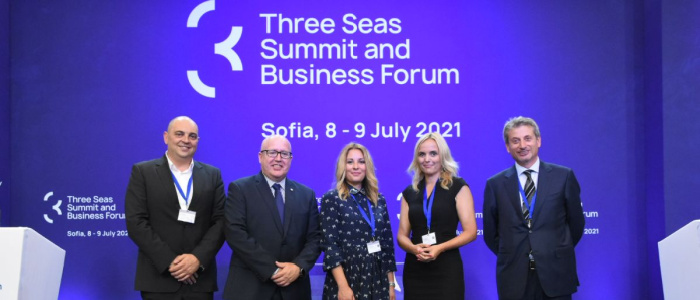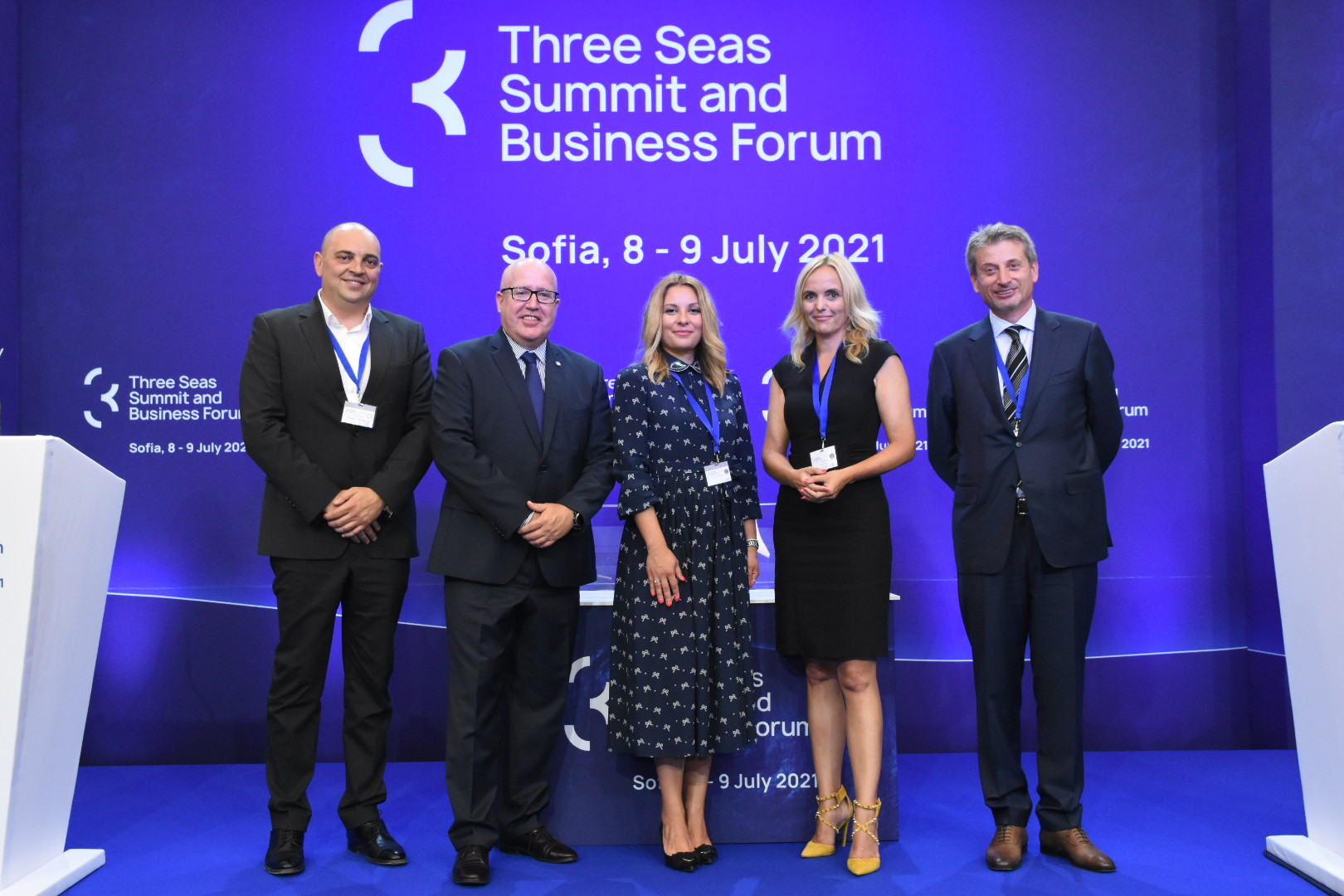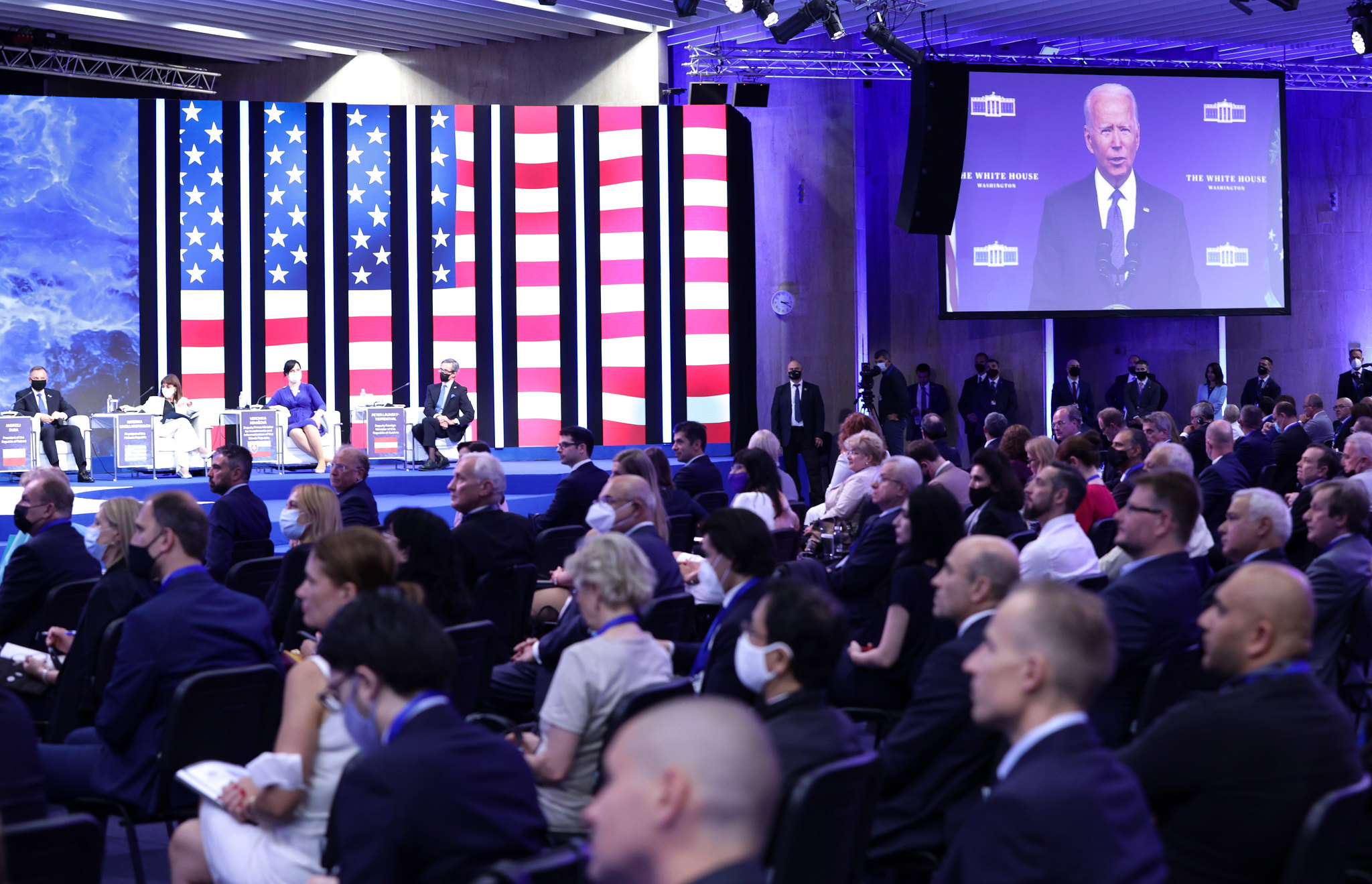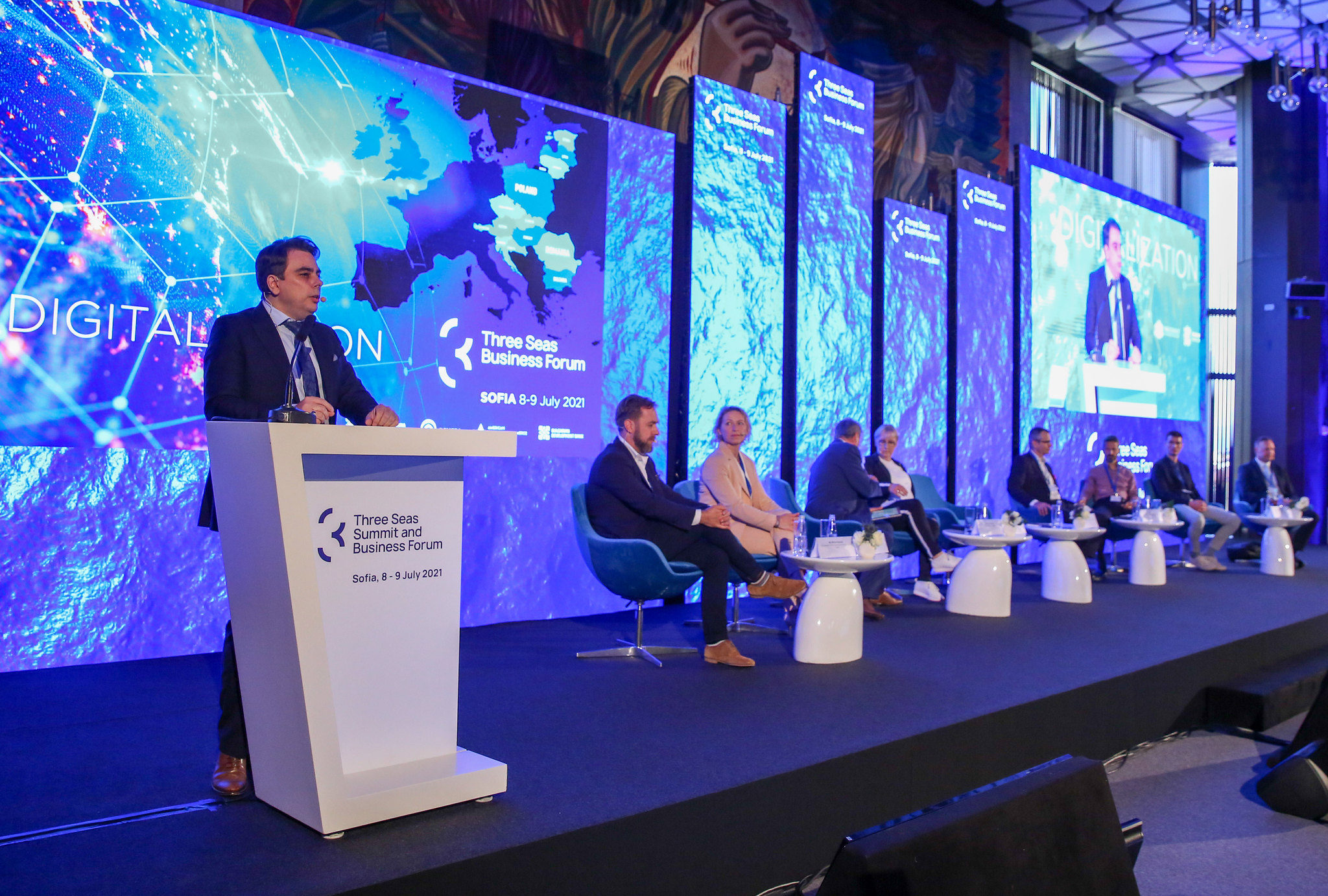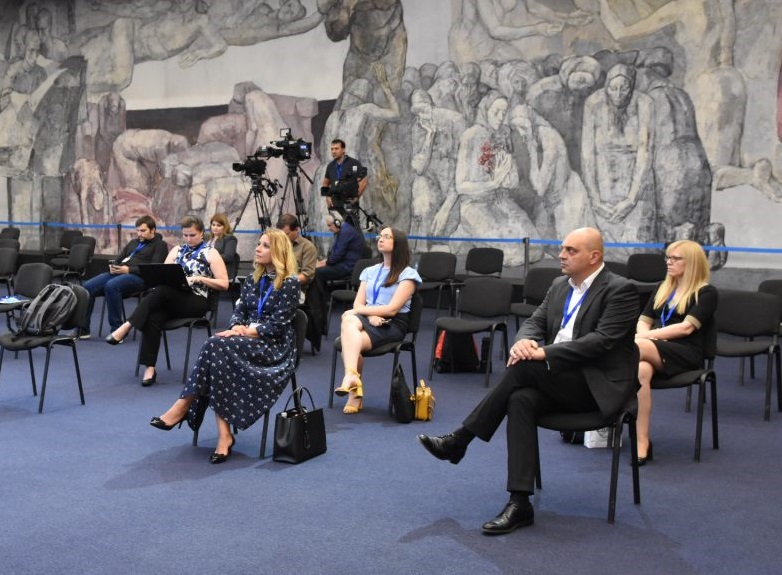Interview with Ms. Maja Filipcheva, President of AmCham’s Board of Directors and Director of Tax & Outsourcing at Grant Thornton on the “3 Seas Initiative“, its importance for the entire European market and its economic growth, the EU’s transatlantic relations, as well as the possibilities it can create to other non-partner countries in the region.
1. Recently, you were part of the “3 Seas – Summit and Business Forum” in Bulgaria. Can you tell us more about this initiative?
The 3 Seas Initiative (3SI) is an initiative of the 12 EU member states of Central and Eastern Europe and is considered the most significant political and economic initiative in the past 50 years. That is why it is expected to become a European and transatlantic priority.
This initiative was started in 2015 by the then-acting presidents of Croatia and Poland and was instigated by the “Completing Europe” report of the American think tank “Atlantic Council”. The report highlighted the developmental differences between the countries of Western and Central and Eastern Europe, as well as the opportunities that the north-south corridor may have for the further integration of Europe and its competitiveness as a market on the global landscape.
What started out as a platform for exchange of views between the presidents of the countries involved, later expanded into a business forum and a commercial investment fund with the goal of financing infrastructure projects in the fields of transportation and energy, as well as the digital sector. Over the years, the initiative included more and more policymakers, representatives of the business community, but also received support from countries that are not part of the 3SI such as Germany and the United States, which became its partners in 2018.
To date, 9 of the 12 member states have contributed to the 3 Seas Investment Fund (3SIF), including the United States, bringing the total amount of funds raised to 1.25 billion euros. The plan is not to stop there, on the contrary, it is about raising funds and increasing the fund through partnerships from the private sector, donations, and greater involvement from the IMF. The decision on which project to invest in is based on the criterion of convergence with the strategy of the 3SIF, as well as the expected rates of return from the specific project.
According to IMF estimates, around 600 billion euros will be required to bridge the infrastructural gap in the region of the 3 Seas, since most of the road infrastructure moves from east to west preventing greater regional connectivity. It is exactly the north-south corridor and investments in roads, pipelines, railways, and electricity networks that are expected to contribute to the prosperity and stability of Europe, and at some point, it is expected that this particular region will become the driver of economic growth in Europe.
The sixth consecutive “3 Seas – Summit and Business Forum”, held in Sofia on July 8th and 9th, comes at a crucial time for the initiative partner countries, and provides many opportunities to revitalize their economies in the post-pandemic period, but only if they work together. The participation of 12 Presidents and Prime Ministers, the inclusion of President Biden and Secretary of State Blinken, over 50 representatives of state institutions, EU agencies, international organizations, and chambers of commerce, as well as representatives of companies, indicate that they are determined to work together to achieve this objective.
2. Can we expect the operationalization of specific projects in the foreseeable future that would arise from the 3SI, and what needs to be done in order for the efforts and conclusions of the Business Forum not to remain only on paper?
Starting with the Summit in Bucharest in 2018, a list of priority projects is presented each year. This year, the list includes a total of 90 projects, with a total value of 181 billion euros, out of which 49% are in the field of transport, 37% in the field of energy and 14% are digitalization projects. What is interesting to note is that 53% of the total funds needed for the implementation of the registered projects have been provided so far, and they come from various sources: the 3SIF, CEF, EU, and national budgets of member states.
Regarding the operationalization of the projects, 1/3 of the total number have already started, and 2 have been completed – one in the field of transport and the other in the field of energy.
Although the 3SI is a platform for attracting investors from the private sector, the established public-private partnerships are the most important for its success. Despite the good results so far, some member states still need additional motivation for establishing policies for attracting investment and encouraging market-oriented growth and development because ultimately, the long-term structural investment will come from the private sector.
3. The Business Forum consisted of 4 panels – energy, transport, innovation, and digitalization. How much of what was discussed was relevant to us?
Unlike the countries of Western Europe which have exceptionally good road connectivity, the countries of the 3 Seas realized that although they are members of the European Union, their region is lagging in transport infrastructure. If we look at the countries of the “3 Seas” region and the countries of the Western Balkans in parallel, we can say that we find ourselves in a similar situation.
This creates a gap between markets, meaning it makes them closed compared to those of Western Europe. Transport is certainly closely linked to energy, and through the statements of the panelists, one can clearly see not only their connection, but also the direction in which they are moving – which is sustainable development and reduction of pollution and harmful emissions. They are working on finding a more efficient transport and logistics system – ie. shortening the trajectory between the point of departure and the point of arrival, opening new corridors, and modes of transport that contribute to reducing costs and emissions into the environment.
At the same time, they are working on the transition from the energy sources used today to renewable energy, a plan that should be fully implemented by 2050. With this plan, they aim to reduce the previously mentioned harmful gases that lead to climate change and frequently catastrophic weather disasters. Focus is also placed on energy efficiency and the transformation of transport methods – such as the hybridization of railways and vehicles as an alternative way of logistics to replace the use of airlines. Hence, the possibility of introducing new ways of transporting goods – such as drones – is being considered, as the cities themselves are becoming more densely populated and congested. This is just an example of taking a creative approach and using technology and innovative solutions for overcoming transport barriers, and to aim at sustainable development in these sectors.
When we talk about innovation and inventions, there is no doubt that they are an integral part of the development of any economy, not only because they offer new solutions to existing problems, but also because they create greater added value. We should also bear in mind that most innovations, inventions, and patents come from small and medium enterprises, which in fact make up the majority of the business community.
Although digitalization had a separate panel at this Summit, the conclusion is that digitalization is inevitable and there is a need for its integration in all sectors. We are talking about vertical integration of digitalization in the other segments thus making it an integral part in them.
In a personal conversation with the President of Estonia, a country that is a pioneer and leader in digitalization, she pointed out that in order to achieve a high level of digitalization we need to look beyond the basic and minimum criteria such as personal data protection (GDPR), and pay attention to criteria such as cybersecurity because as societies we have a responsibility to guarantee the protection of individual privacy as a guaranteed basic human right. This is the only way that quick access can be provided for data that requires a high degree of security due to their nature reaching beyond the limits provided by the regulation on personal data protection. In terms of regulation, it should be a reflection of today’s business world, and what now applies on the local level must also apply to the digital. In this manner, we can build trust in the community and contribute to greater progress.
4. A declaration of cooperation was signed between 10 AmChams which are part of the “3 Seas” countries at the Summit. What did it signify and how was AmCham Macedonia part of this Summit?
As I mentioned earlier, the concept of the Initiative and the Summit and Business Forum itself, are based on inclusion and cooperation between policymakers and the private sector, because we can’t talk about economic growth and prosperity in the region without the support of the business community.
The AmChams in Europe network consists of 44 American Chambers of Commerce in Europe, and its members recognize the importance of this initiative, not only for the “3 Seas” member states but also for the entire European market and its transatlantic relations. This is why the AmChams from the 11 member states signed the first declaration of cooperation in support of the initiative, back in 2019, at the “3 Seas Summit and Business Forum” in Ljubljana.
This year, cooperation between the 3 Seas initiative and the AmCham network has been raised to a new, much higher level, with AmCham Bulgaria becoming co-organizer of the Sofia Summit and Business Forum and moderator of the digitization panel. It is interesting that the conclusions that were reached within the digitalization panel and refer to the vertical integration of the digital sector in all other segments of the summit (transport, energy, and innovation), give a new direction in the approach and treatment of digitalization, not only at the summit itself but in general.
The declaration signed by the 10 AmChams at the 3 Seas Summit in Sofia, aims to express support for better infrastructure, diverse and secure energy sources, rapid digitalization, and innovation, and also emphasizes the role of chambers in meeting the goals set up by the “3 Seas” to build a more integrated, more prosperous and safer region within the EU single market.
In order to deepen the regional cooperation, myself and my colleague from the Board of Directors Mr. Jordan Dimitrovski, were part of this summit upon invitation by our colleagues at AmCham Bulgaria and had the opportunity to get acquainted with the opportunities for cooperation and involvement of North Macedonia as a non-partner in the projects of this initiative.
5. What are the conclusions of AmCham from all this, what can be drawn out for us a country and a region, and what do you as AmCham have planned?
AmCham as a chamber was part of several forums and summits last month – a conference of the Western Balkan countries on their investment prospects and their policies for future economic development as a region, the “Skopje Economic Forum” held for the first time and organized by Delphi Economic Forum, and the “3 Seas – Summit and Business Forum”.
The common conclusion from all of them is that, above all else, we should decide on our starting point through a situational analysis based on our country’s potential (industry, geography, demographics) and then exactly define what we are striving for, the direction we need to head in.
If we were to map out our weaknesses compared to the more developed countries and what enables their economic development, what would follow are specific activities and a lot of work.
As we can see from the positive example of our neighbors and the “3 Seas” countries, networking and regional cooperation are key to undertaking major improvement efforts.
Regional cooperation and the establishment of stable partnerships with a clear mission are essential if we are to move forward. Yes, it is true that all this requires commitment, engagement from the business community, and of course, both political will and work. If clear goals are set, with good cooperation, none of this is unattainable.
Please visit the link provided below to read the interview with Ms. Filipcheva, published by Kapital.

